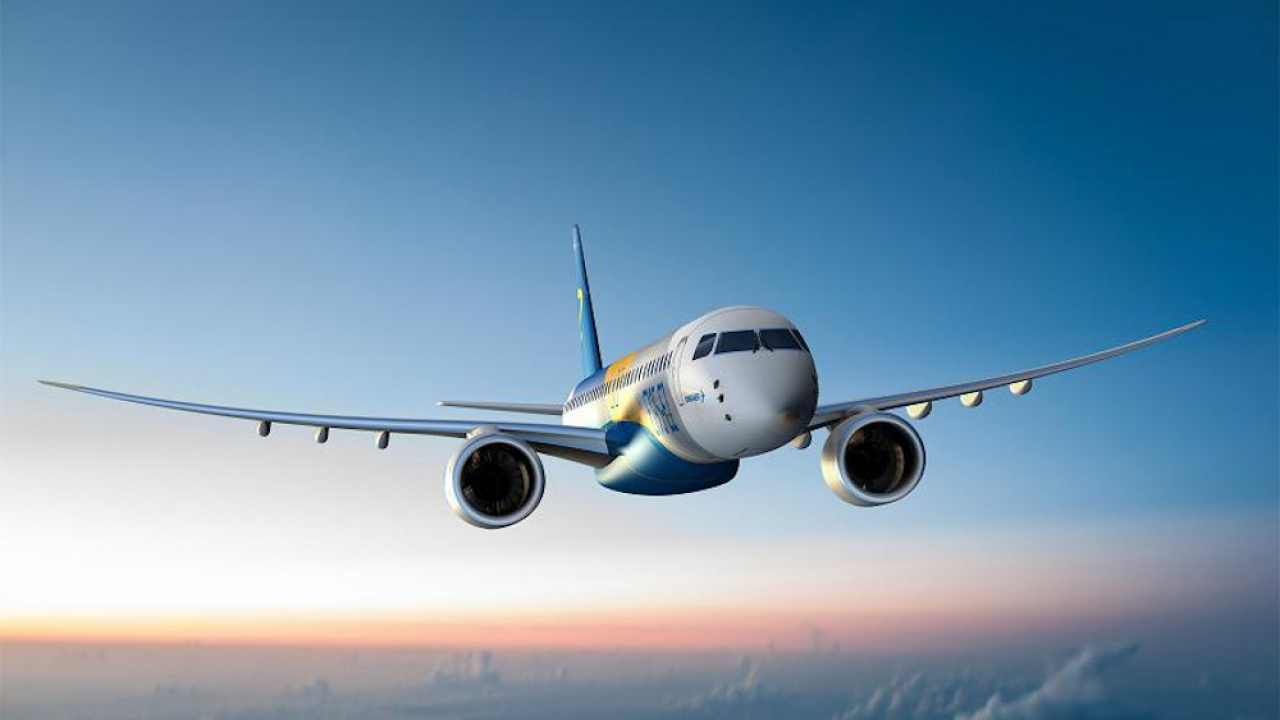BREAKING NEWS: Gulf Air reveals new strategy

Samer Majali and Talal Al Zain pictured at this morning's presentation
The strategy follows a three-month structural review headed by the new chief executive, Samer Majali and included in-depth research with Bahrainis and other Gulf nationals to understand what the target customer was looking for.
Key moves see the airline increasing its intercontinental connections with a special focus on linking global financial centres with the island state which for many years as been recognised as the financial banking hub for the Gulf.
Unveiling the new strategy to employees earlier this morning, Mr Talal Al Zain, Gulf Air Chairman and Chief Executive of Mumtalakat , the investment company for the Kingdom of Bahrain, which owns the airline, said, “we have a clear mandate: to build an efficient, commercially sustainable and dynamic airline that effectively serves the people and the economy of Bahrain and represents the Kingdom on the world stage.”
He added, “To achieve this we must re-align Gulf Air to deliver a product that our customers need and want. The airline will become more efficient as we align its cost base with this new strategy, maximizing investment into areas of the business that will offer the best returns whilst reducing cost in those that don’t.
“At the moment Gulf Air currently relies on significant Government support, spending far more than it earns. This is clearly unsustainable and the funds could be invested into other important areas of the national economy.”
Samer Majali, Gulf Air’s chief executive said, “The new strategy best reflects the needs and demands of our customers. Without them we don’t have a business. Consequently, this strategy will create more value for money, re-aligning the network to reflect customer demand as well as redesigning the product to deliver more customer value on a consistent basis.“
For the first time, Gulf Air will focus specifically on Bahrain, serving the Kingdom with higher frequency, non-stop services to more destinations across three continents. “We will also provide better services to some of the world’s leading financial markets, helping to support Bahrain’s significant financial services sector,” Majali said
Gulf Air’s new strategy will focus on three core areas:
NETWORK: The airline says it will re-align its international network to reflect its customers’ needs and aspirations. It will therefore expand its operations into over twenty new destinations in the Middle East, Africa, Asia and Europe. This will consolidate and expand its existing position as the carrier with the largest number of Middle East connections through the efficient Bahrain Airport hub. It will also suspend up to fifteen other routes and close a number of overseas stations that are not profitable and no longer reflect customer needs. This will include the airline’s current operations to Shanghai, Hyderabad and Bangalore.
PRODUCT: Gulf Air says it will improve the customer experience by introducing a number of attractive new product innovations, seating arrangements, in-flight entertainment and other on-board amenities, tailored to the Middle East region on a consistent basis. Majali’s team will be working to reduce fleet costs and minimise expenditure that it sees as no longer adding customer value.
FLEET: The airline will continue to improve its operational efficiency and reliability by investing in aircraft that will be optimised for the new network and flight schedule. The fleet composition will focus primarily on narrow-body aircraft and regional jets, including a number of long-range narrow-body aircraft which will connect Bahrain to key financial centers in Europe and Asia.
The strategic plan will necessitate a substantial increase the current requirement for narrow-body aircraft beyond the fifteen ordered A320s, three of which have already been delivered, whilst reducing the requirement for wide-body aircraft.
“We are engaging our aircraft manufacturing partners in order to align our current order book with our new strategy. The company is also considering the introduction of regional jet aircraft on the short range routes from Bahrain as early as next year,” Majali said.
The airline is exploring the possibility of selling five of its A340s as well as other aircraft in the fleet that have become surplus to requirements.
The targeted three year transition programme is split into two main parts.
Phase 1 will be undertaken over the next six to twelve months and will focus on re-aligning the existing network to match market demand.
Phase 2 will be undertaken in the second and third years and will focus on growing into new markets where there is identified growth potential, supported by the introduction of a compelling new range of products and services.
Al Zain reminded staff of the important need for change, “We estimate this programme will save the Government of Bahrain up to BD 1 billion (US$2.65 billion) in direct support over the next five years. That is the equivalent of BD400 per Bahraini national per year. If we do not implement this programme, Gulf Air will continue to be an unacceptable burden on the national economy. No Government, business or individual can continue to spend more money than it earns over a continued period of time. Gulf Air is no exception.”
Stay up to date
Subscribe to the free Times Aerospace newsletter and receive the latest content every week. We'll never share your email address.

